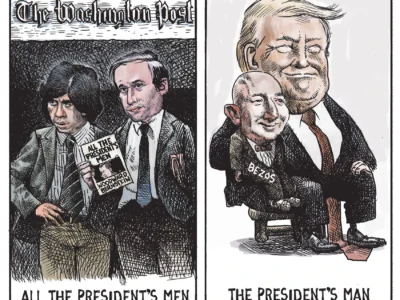Can Economists Predict AB32’s Impact?
A mildly interesting debate is taking place among the economists. On Thursday, Bo Cutter and I published this opinion piece
in the Sacramento Bee. Bo and I are both supporters of AB32 but we are not “naive supporters” of this regulation. I will speak for myself here and admit that I’m a modest man. I don’t have a crystal ball and I don’t know what the future holds. I do have a strong understanding of microeconomics and I know many of the details about how AB32 will be implemented. With this information alone, I am confident that the ARB will navigate the tough ride and find the sweet spot of creating new “rules of the game” that reward carbon mitigation without strangling the California economy.
For the many critics of AB32, I encourage them to offer explicit examples of exactly how will AB32 raise the costs for specific businesses. For the cases they raise, why can’t the polluter substitute to a lower carbon alternative? If such an alternative doesn’t currently exist, how do they know that such an alternative won’t exist in 3 to 5 years? AB32’s permit pricing will rise only very slowly. It appears to me that there will be plenty of phase in time to adapt.
Who exactly is “locked in” to costly carbon intensive technology? One possible answer is trucks. In this case, I want to know why freight trains can’t be substituted for these trucks? In England, research into “low carbon trucks” is taking place. For those businesses who have made large investments in low MPG trucks, these California firms can sell them to firms in other states that do not face AB32. Yes, this will be an example of carbon leakage in the short run but this simple example shows that there are many coping strategies so that businesses can continue to thrive in California. The critics of AB32 would be wise to stop hiring consulting economists who have a fancy mis-specified computable general equilibrium model and instead to offer more stories of exactly why their firm is so rigid in its ways that it can’t adapt to the new rules.
A fundamental property rights issue emerges here. Why do the polluters have the right to keep polluting without paying for this pollution? Just because they have faced a zero marginal cost for releasing GHG emissions doesn’t mean that they have the property right to continue to do so.
Reader Comments
2 Replies to “Can Economists Predict AB32’s Impact?”
Comments are closed.







It’s easy to say ‘sell the trucks’ but what about the drivers who drive them? How are they supposed to “substitute” their bread and butter? Do you have jobs for them, or are they just supposed to be collateral damage? We have to remember, there are human beings involved, not just equipment.
It’s easy to say ‘sell the trucks’ but what about the drivers who drive them? How are they supposed to “substitute” their bread and butter? Do you have jobs for them, or are they just supposed to be collateral damage? We have to remember, there are human beings involved, not just equipment.